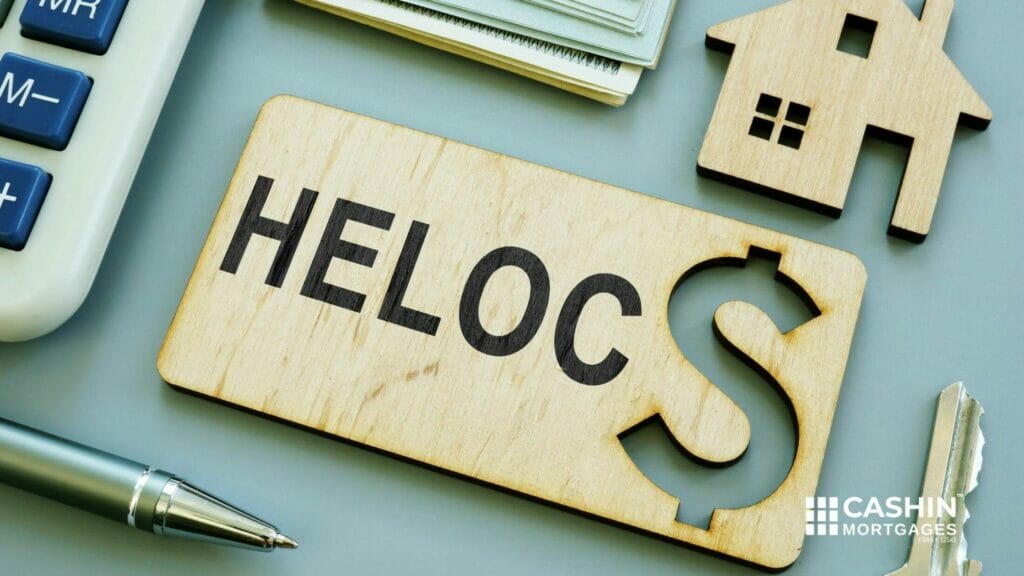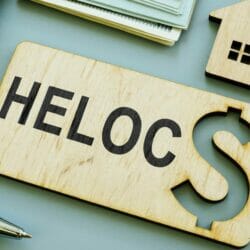
A HELOC (Home Equity Line of Credit) can be an appealing alternative if you are a homeowner wishing to tap the equity in your home. A HELOC is a revolving credit line secured by the equity in your home. It can be used for an array of purposes, including home improvements, debt repayment, and investing.
HELOCs can give you quick and easy access to cash when you need it. But, like with any financial instrument, there are advantages and disadvantages to consider before applying for a HELOC. In this article, we’ll look at the benefits and drawbacks of a HELOC to help you decide if it’s right for you.
Home Equity Line of Credit: Pros
1. Flexible access to funds
HELOC is a revolving line of credit that you can access whenever you prefer. This flexibility allows you to manage your finances more effectively, especially if you have unexpected needs or if your income is inconsistent. Unlike a standard loan, which has a predetermined repayment term, a HELOC often has a draw duration of 5 to 10 years, during which you can withdraw funds as needed.
This gives you a lot of freedom and allows you to borrow money as needed, rather than all at once.
HELOC funds can be used in any way you see fit. You can use the funds for a variety of purposes, such as home improvements, debt consolidation, or education fees, a HELOC can help you get the job done. Unlike conventional loans, which have restrictions on how you may spend the money, a HELOC allows you to spend it in any way you consider convenient.
2. Lower interest rates
Because a home equity line of credit is secured by your property, you may be able to borrow at a lower interest rate than you would with other forms of loans, such as personal loans or credit cards.
HELOCs are a more appealing alternative for homeowners than other types of loans due to their lower interest rates.
3. Potential tax benefits
Interest paid on a HELOC is generally tax deductible in Canada if the borrowed funds are used for eligible expenses such as home renovations or investments. This can help you save money on taxes and make a HELOC more appealing than other types of loans.
However, it is critical to contact a tax professional to assess your eligibility for these tax benefits and ensure the funds are used for eligible expenses.
4. Can improve credit score
You can demonstrate to lenders that you are a responsible borrower and improve your credit history by making timely payments on your HELOC. Furthermore, having a HELOC can boost your total available credit, which can lower your credit utilization ratio and raise your credit score even further.
But it’s vital to understand that using a HELOC irresponsibly and accumulating too much debt might have the opposite effect on your credit score. To realize the potential credit benefits, it is critical to use a HELOC responsibly and make timely payments.
5. High loan limits
HELOCs also typically have higher loan limits than other types of loans. Because the loan is secured by your home equity, lenders are often willing to lend you more money than they would with an unsecured loan. This means that if you need a large sum of money, a HELOC may be a more viable option than other types of loans.
6. Low initial monthly payments
HELOC loan limitations are generally greater than those of other types of loans. Lenders are usually willing to lend you more money than they would with an unsecured loan because the loan is secured by your home equity. As a result, if you need a significant sum of money, a HELOC may be a better option than other types of loans.
Home Equity Line of Credit: Cons
1. Risk of borrowing too much
Because a HELOC allows you to borrow money quickly, there’s a chance you’ll borrow more than you can pay back.
This can result in financial hardship and possibly home foreclosure.
2. Variable interest rates
HELOC interest rates, unlike fixed-rate mortgages, can change with market conditions. This implies that your monthly payments may rise, making it more difficult to budget and plan for expenses.
3. Fees and charges
One of the most significant disadvantages of a HELOC is that there may be a variety of fees and charges associated with the loan. They can include, among other things, application costs, annual fees, transaction fees, and early termination fees. These costs can quickly mount up, and it’s critical to incorporate them into your overall costs when deciding whether a HELOC is right for you.
4. Your home serves as collateral for the loan
If you fail to make your HELOC payments, the lender may be able to foreclose on your house. This is a significant risk that should be thoroughly evaluated before obtaining a HELOC.
5. Many have ongoing fees
Aside from the initial fees, many HELOCs contain ongoing fees that can add to the overall cost of the loan. Some lenders, for example, may charge an annual fee or a monthly maintenance cost for the life of the loan. These costs might be aggravating for borrowers who already feel they are paying a lot for the loan.
6. Payments are inconsistent
Another disadvantage of a HELOC is that payments can be unpredictable. During the draw period, you may only be required to make payments on the loan’s interest, which can be a small monthly amount. But you will be obliged to make payments on both the principal and interest during the payback period, which might result in substantially higher monthly installments.
This can be difficult for some borrowers who are not prepared to increase their payments.
Some lenders may charge an annual fee or a monthly maintenance cost for the life of the loan. If you’re not prepared for this increase in payments, it can be difficult to manage your finances.
HELOC can be a great option for homeowners who need access to cash for home renovations, investing, or other expenses. However, it’s important to carefully consider the potential drawbacks and risks before taking out a HELOC.
If you’re unsure if a HELOC is right for you, speak to a mortgage professional at Cashin Mortgages. We can help you weigh the pros and cons and make an informed decision.

